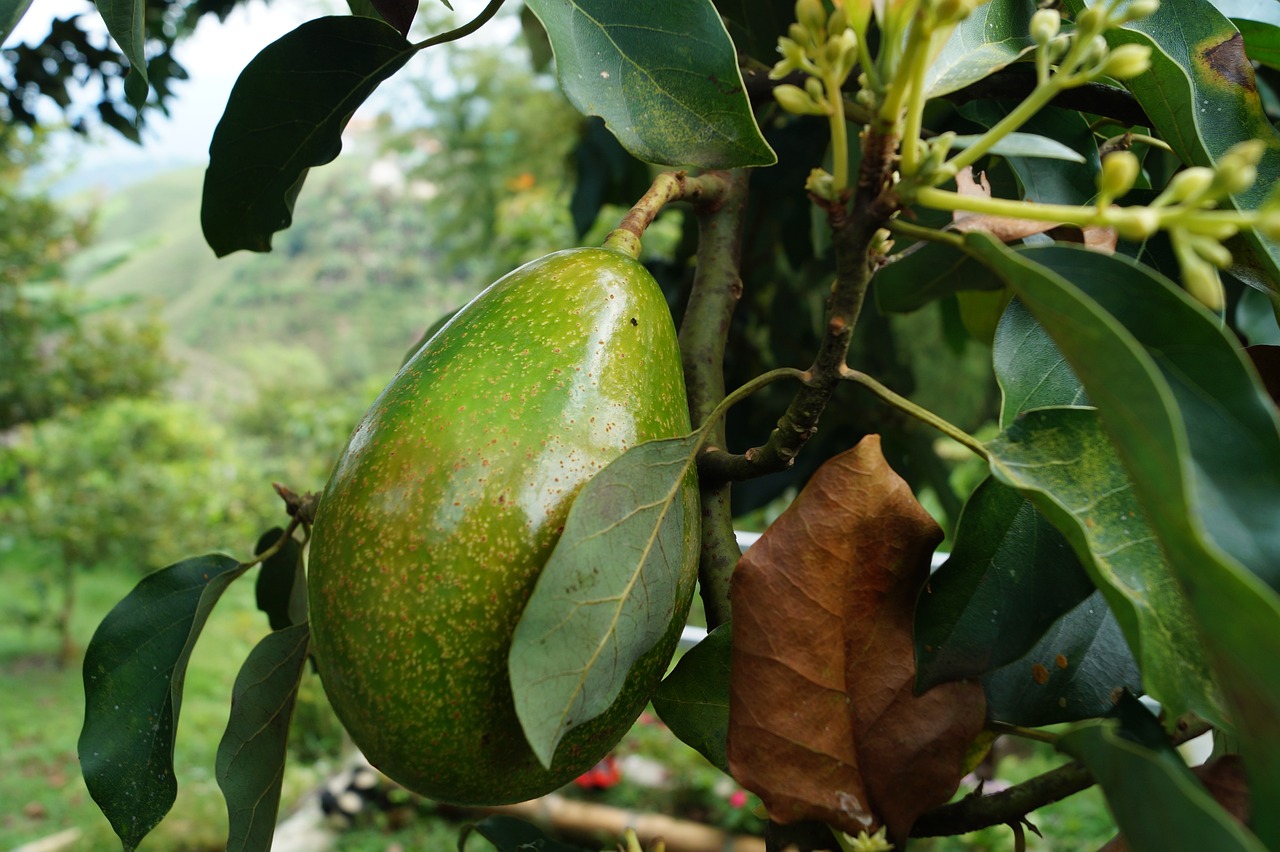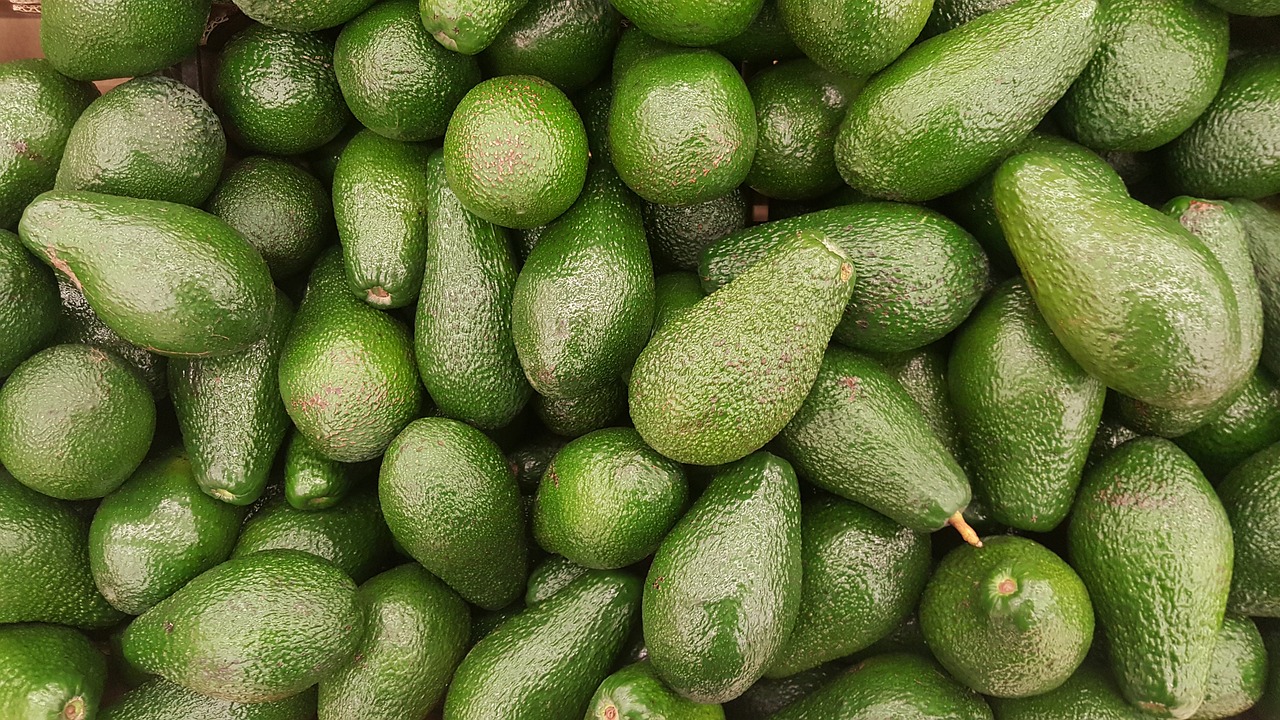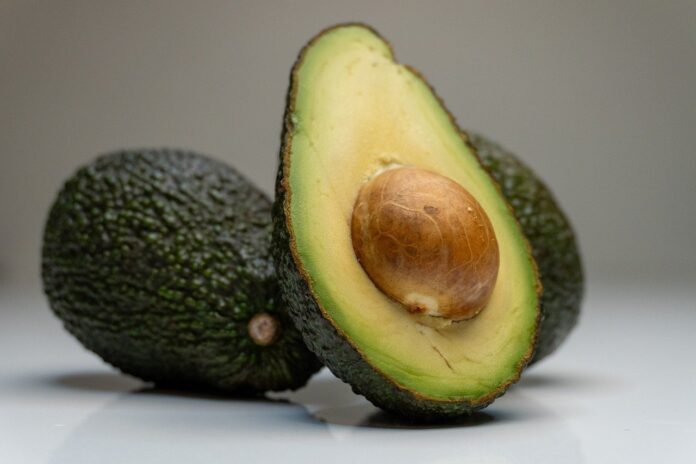Thousands of years ago, the evergreen avocado plant was cultivated by the ancestors of the Aztecs, who called it the “egg tree.” Linguists claim that this is how the word “avocado” is translated. The thick, wrinkled skin of this exotic fruit resembles crocodile skin so much that it has earned the nickname “alligator pear.”
Origin and Growing Conditions
Avocado (Persea americana) is a fast-growing, leafy tree from the Lauraceae family. In its natural habitat, it can reach a height of 20 meters, with a crown width of up to 6 meters and a trunk diameter of 0.3-0.6 meters. Though native to Mexico, Israel was instrumental in cultivating the fruit on a large scale, helping it gain popularity. 
Today, avocado is a staple in the kitchens of tropical and subtropical countries. Extensive plantations are found in the U.S., the Mediterranean, Africa, and Latin America. Major exporters include the Dominican Republic, Indonesia, Colombia, Mexico, and Chile. More than 400 varieties exist, divided into types:
- Mexican varieties – These can withstand frost down to minus 6°C and are resistant to unfavorable climatic conditions. Their thin-skinned fruits weigh up to 300 grams and ripen in the fall. A distinctive feature of these varieties is that the leaves smell strongly of anise when crushed.
- Guatemalan varieties – These are hardy and warm-loving. The fruits weigh 400-600 grams, and the harvest is collected in late spring.
- West Indian varieties – These cannot survive low temperatures. They flower in late May to early June, and the fruits mature 7-8 months later, weighing 200-400 grams. Yield depends on soil quality and other factors. Avocados are best planted in open areas with loose, moderately moist soil (such as red clay, sand, limestone, or loam). The plant can be propagated by cuttings, seeds, or grafting.
Avocado – A Natural Medicine
The alligator pear is used in both cuisine and medicine. Its flavor is not typically fruity; it has a mild taste, resembling butter with hints of nuts and greens. The pulp is incredibly nutritious, packed with vitamins, macro- and microelements, folic acid, ascorbic acid, fiber, and tocopherol, to name a few. Avocados are high in calories, providing 160 kcal per 100 grams.
They are low in sugar but rich in unsaturated fats, making them suitable for both those with obesity and people seeking to gain weight. When combined with physical exercise, avocados can help in building muscle mass. Persea americana is a source of numerous health benefits:
- Vitamin B6 lowers cholesterol and prevents vascular diseases such as thrombophlebitis and atherosclerosis.
- Beta-carotene helps prevent glaucoma and cataracts, improves vision, and strengthens eye muscles.
- Avocado helps regulate the digestive system.
- The fruit is a natural antioxidant, neutralizing free radicals and slowing the development of malignant tumors.
- Avocado oil has healing properties and can treat skin conditions.
- Its fats help maintain normal blood glucose levels, regulate water-salt balance and metabolism, and enhance the absorption of unsaturated acids and vitamins.
- Regular consumption increases hemoglobin levels.
- Avocados stimulate brain activity and improve the body’s resistance to stress and illness.
Avocado Benefits for Women
Women are advised to eat half a ripe avocado daily. The alligator pear has toning properties, smooths wrinkles, and triggers cell regeneration. Cosmetic masks made from avocados, thanks to vitamin A, give the skin a radiant glow and slow down the aging process. Calcium and phosphorus improve the structure of bones, nails, and hair. 
Folic acid, found in avocado pulp, reduces the risk of miscarriage during pregnancy and supports the normal growth and development of the fetus. This popular fruit also boosts the production of sex hormones and regulates the menstrual cycle. Magnesium, vitamins E and B2, and iron provide significant protection against female reproductive organ cancers.
Persea americana – A Valuable Product for Men
Avocado restores and enhances potency, with folic acid positively affecting reproductive function. Other benefits of this exotic fruit include:
- Activation of testosterone synthesis.
- Acceleration of metabolism.
- Stress-relief properties.
- Prevention of urogenital inflammation.
- Support for cardiovascular health. Avocado pulp contains high amounts of L-carnitine, which athletes take to improve endurance. This substance also helps bodybuilders increase muscle mass. Some nutritionists caution against eating too many avocados, as frequent consumption may disrupt male hormone balance. It is recommended to limit avocado intake to three times a week.
Interesting Facts About This Remarkable Fruit
The alligator pear boasts not only a unique composition but also several intriguing facts:
- The ancient Aztecs were the first to eat avocados. Archaeologists believe it was part of their diet 8,000 years B.C. The Aztecs considered “ahuacatl” a symbol of love and fertility. In South America, avocados are still given to newlyweds as a wish for happiness and family well-being.
- Due to its neutral taste, Persea americana is often used like a vegetable to make salads, soups, sauces, pâtés, and dressings.
- The skin, seed, and leaves are toxic to pets, birds, and humans.
- The popular Hass variety was patented in 1935 by an American mailman who discovered a fruit-bearing avocado tree in his yard. This tree became the ancestor of all other Hass avocados and still bears fruit today.
- In 1998, the avocado was listed in the Guinness World Records as the most nutritious and beneficial fruit.
- An avocado only begins to ripen after being picked from the tree. It can remain on the branch for up to 18 months without spoiling.
- Avocados are rich in protein, making them popular among vegetarians and vegans as a meat substitute.
